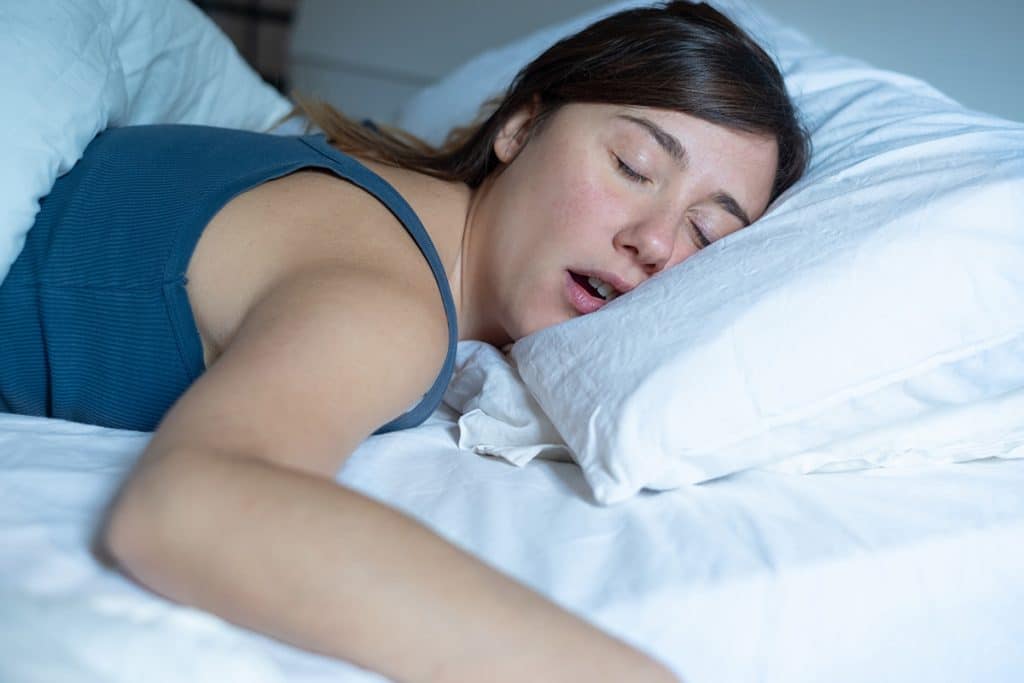Grinding Teeth? Here's What You Should Know

Grinding or clenching your teeth is a condition known as bruxism. Grinding your teeth may seem harmless, but when it comes to oral health, nothing could be further from the truth. Grinding your teeth can lead to a host of negative consequences for both your oral health and your overall health. Here’s what you should know about grinding your teeth.
Reasons You May Be Grinding Your Teeth
Bruxism may be a lifelong habit, or you may develop the habit later in life. Although in many cases, the exact reason you clench or grind your teeth may never be pinpointed, there are several common causes of bruxism.
Stress
During periods of high stress, you may begin grinding or clenching your teeth. You’re more likely to grind while sleeping. But you may find yourself clenching your teeth while awake or asleep. Other psychosocial factors may also provoke bruxism, such as anxiety, fear, or depression.
Habits/Lifestyle
Certain habits appear to be linked to teeth grinding and clenching. For example, smoking and alcohol or caffeine consumption may contribute to the development of bruxism, according to the National Institute of Dental and Craniofacial Research.
Medication Use
Some medications appear to be connected to bruxism. These include medicines that may be prescribed for depression, seizures, or attention-deficit disorders such as ADHD.
Genetics
If your parents grind or clench their teeth you may be more likely to develop bruxism, as researchers suspect there may be a genetic component.
Risks of Grinding Your Teeth
Occasional tooth grinding, often during stressful or emotional times, is fairly common. However, if the condition persists, the added pressure on the teeth and the jaw joint can lead to serious oral health problems that negatively impact your health and wel-lbeing.
Cracked Teeth
Teeth grinding is a leading cause of cracked teeth. The repetitive pressure on the teeth can weaken the teeth (often the molars) and cause cracks to develop.
Enamel Erosion
Grinding your teeth wears away at the enamel. This can lead to a host of problems ranging from tooth decay to infections, and chips or cracks.
Gum Disease or Gum Recession
The strain on the teeth from grinding or clenching may lead to tooth loosening. This can create pockets in the gum where bacteria is likely to thrive. Gum disease, or receding gums may result.
TMJ
Pain, clicking, popping sounds or a sensation of the jaw locking up are all symptoms of disorders of the temporomandibular joint (TMJ). Grinding and clenching the teeth are a known cause of TMJ disorders.
Headaches
Headaches may develop due to excessive muscle strain from clenching or grinding your teeth.
Pain
Teeth grinding can cause pain in a variety of areas. You may experience sensitive, painful teeth. Your gums may become tender or inflamed. But you may also develop pain in the jaw, face, ears, or neck due to teeth grinding.
How Your Dentist Can Help With Teeth Grinding
There are a variety of nonsurgical treatments that may be appropriate to prevent teeth grinding and clenching. Your dentist may recommend a custom night guard such as a bite guard. If grinding or the onset of TMJ is due to misaligned teeth or a problem with your bite (malocclusion), your dentist may recommend orthodontic treatment with Invisalign or braces.
If you’ve started grinding your teeth seemingly out of the blue, your dentist may ask about stress in your life. New jobs, marriage or divorce, moves, and loss of loved ones may all prompt you to begin grinding your teeth. During high-stress periods, relaxing activities should be prioritized. Yoga, meditation, walks in nature, exercise, stretching, and deep breathing exercises may help. If your teeth and jaw are sore, switching to soft foods temporarily, along with an anti-inflammatory medication may help.
Frequently Asked Questions about Teeth Grinding
Will I stop grinding my teeth on my own?
You may. If bruxism arose suddenly due to stress, anxiety, or other mental health conditions, as you treat the underlying condition, you may stop grinding your teeth. Other people may suffer from bruxism their entire lives unless they receive treatment.
Do night guards for grinding hurt?
No. They feel unusual when you first wear them because they are new. But most people adjust to night guards quickly. If your night or bite guard is causing pain, notify your dentist.
Schedule an Oral Health Check in Westport, CT
If you’re experiencing any signs or symptoms of grinding, or you’ve developed pain in your mouth or jaw, schedule an appointment at Imperial Dental Associates in Westport, CT by calling 203-227-2520. You may also send us a message to request an appointment. To best serve patients, we offer appointments on alternating Saturdays.
